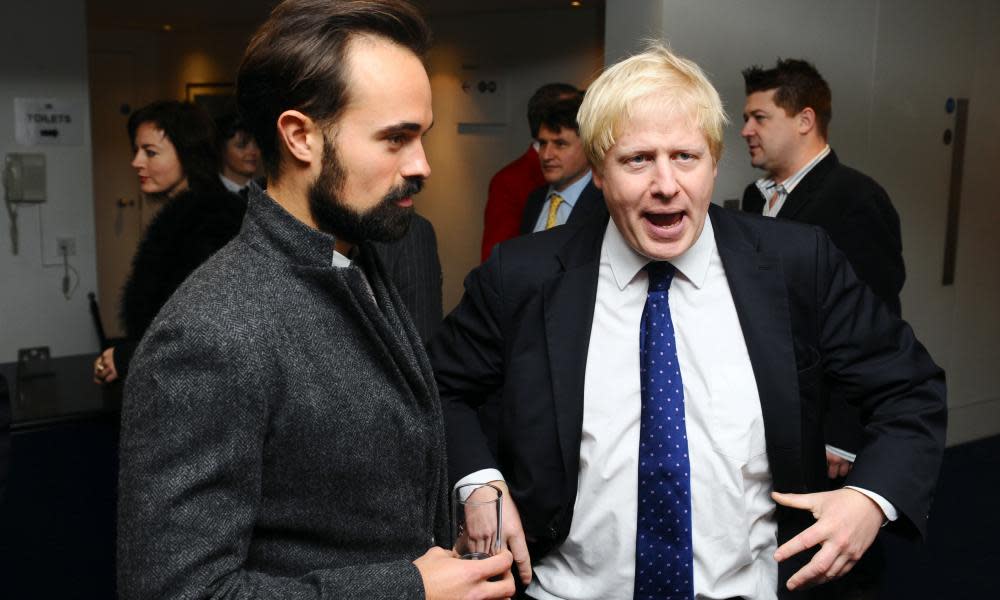The Guardian view on Johnson's honours list: shameless and far too long

In the years following the first world war, a colourful chancer named Maundy Gregory made a personal fortune selling knighthoods and baronetcies on behalf of David Lloyd George’s Liberal party. Gregory, who operated out of a lavish office in Whitehall, was eventually convicted under the Honours (Prevention of Abuses) Act in 1933, and went into exile in France to live on a comfortable pension provided by friends in high places.
There was, of course, nothing illegal about the new honours list published discreetly by Boris Johnson last Friday afternoon, as the nation was distracted by the prime minister’s unexpected Covid-19 press conference. But the sheer cronyism at work in some of Mr Johnson’s nominations risks further discrediting a tarnished institution already held in dubious regard by the public. The unelected House of Lords is easily the most bloated second chamber of any democracy in the world. The addition of 36 new peers to its ranks will take the total number of legislators to 830, a number that the Lord Speaker, Norman Fowler, rightly judged at the weekend to be “ridiculous”. In 2019, 120 of those peers attended less than 10% of parliamentary divisions and 130 failed to make a single contribution to any Lords debate. A drastic winnowing process is long overdue, which is why Theresa May’s pledge in 2018 to exercise restraint over new appointments was widely welcomed. Instead, Mr Johnson decided to draw up a bumper list of newbies which has little to do with the promotion of good governance and a lot to do with recognition of services rendered to the good ship Boris.
The ennoblement of the billionaire newspaper owner, Evgeny Lebedev, came just a week after the intelligence and security committee drew attention to the growth of Russian influence at the heart of British politics and business. Mr Lebedev, the son of a former KGB agent, has in the past welcomed the prime minister to his lavish parties, including one in an Italian castle. But the support offered by his Evening Standard newspaper to Mr Johnson, during his time as London mayor, may have been more significant in securing a place in the Lords. Veronica Wadley, a helpful former editor of the Standard, has also received a peerage.
Making one’s own younger brother a lord is never going to be a good look, whatever the familial motives behind the prime minister’s decision to ennoble Jo Johnson. Boris Johnson also sought to heal post-Brexit wounds in the Conservative party by giving peerages to prominent remain rebels such as Philip Hammond and Ken Clarke. Perhaps in a similar spirit of reconciliation, he handed a knighthood to his ousted predecessor’s husband, Philip May, for “political services” which remain undefined. Those offered by the ennobled billionaire businessman Michael Spencer are more obvious: Mr Spencer has donated £5m to the Tories. The lifelong berth in the second chamber for Sir Ian Botham also grates. Sir Ian was a splendid cricketer of course, and is a devoted charity campaigner, but did his vocal support for Brexit really qualify him for a role in the legislature?
Egregious though some of Mr Johnson’s nominations are, it would be unfair to single them out as uniquely reprehensible. Other prime ministers have used honours lists in similarly self-interested fashion. But as the Lords reaches a size that borders on the tragi-comic, this regular pantomime of pomp and preferment risks becoming ruinous to the health of the body politic. The ritual and the ermine masks an out-of-control culture of back-scratching and favours asked for and returned. Much of the work done by the second chamber is valuable and diligently performed, but it cannot afford to resemble a private club that offers a comfortable home and personal prestige to members of a gilded circle of influence. Mr Johnson’s Dissolution Honours List was all too aptly named.

 Yahoo News
Yahoo News 
